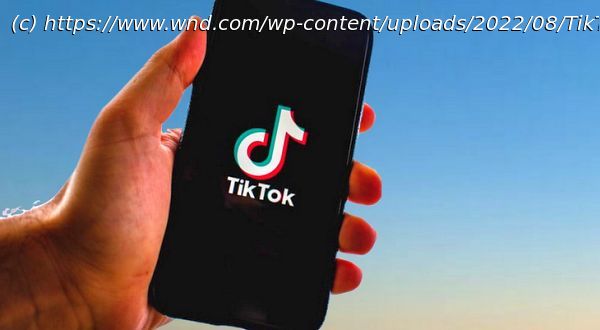Array
Over the last month, TikTok has three times interrupted or shut down content on an account airing a powerful documentary about Jimmy Lai, the Hong Kong entrepreneur, newspaperman, and pro-democracy activist imprisoned for more than two years for his role in criticizing the Chinese government.
After censoring its videos of Hong Kong police beating and teargassing protesters in 2019, TikTok last week suspended the account distributing the documentary about Lai, and then reinstated it after multiple media outlets reported on its unexplained shutdown.
Robert Sirico of the Acton Institute for the Study of Religion and Liberty, a Michigan-based think tank that produced the documentary, says TikTok’s interference in the promotion of the Jimmy Lai film “The Hong Konger” is hardly a coincidence. In fact, he argues, it’s clear evidence of Beijing’s influence over content on the Chinese social-media platform’s parent company, Bytedance, despite TikTok CEO Shou Zi Chew’s March testimony to Congress denying the platform would ever censor on behalf of China’s Communist Party.
“It is ironic that content promoting ‘The Hong Konger’ on TikTok would generate account disruptions and temporary suspensions, particularly when TikTok insists it does not cater to the Chinese Communist Party in the adjudication of its content,” Sirico, president emeritus of the Acton Institute, plans to tell the U.S. Congressional-Executive Commission on China (CECC) Thursday afternoon, according to written testimony he submitted to the commission ahead of his appearance.
Sirico, a Catholic priest and a close personal friend of Lai’s for more than 25 years, will testify before the panel along with Lai’s son, Sebastien, about Lai’s unjust prosecution and imprisonment in Hong Kong. Jimmy Lai is one of more than 1,000 political prisoners Hong Kong authorities have arrested and sentenced under the national security law imposed by Beijing after the 2019 pro-democracy protests swept the once semi-autonomous city.
Their testimony, along with that of several other human rights advocates, corresponds with the release of the commission’s report on Hong Kong judges’ role in undermining the rule of law in Hong Kong through broad interpretations of the national security law. The law, enacted in 2020, criminalizes any form of government protest, characterizing different forms of pro-democracy activism as subversion, secession, collusion with foreign or external forces, and terrorism, defined as the use of violence or intimidation against people. Those prosecuted include journalists and online protest organizers, even those whose crime is limited to displaying flags or banners or chanting slogans critical of the Chinese government.
Before the new law, there were 26 political prisoners held in Hong Kong. As of early May, judges in Hong Kong had convicted 1,198 protesters and pro-democracy advocates, 612 of whom were sentenced to an aggregate of 772 years in prison, according to the CECC report.
“By design and in practice, the [national security law] created a parallel legal system that weakens judicial independence and strips criminal defendants of basic due process protections available in the existing common law system, which is referenced in the Basic Law,” the CECC report states.






